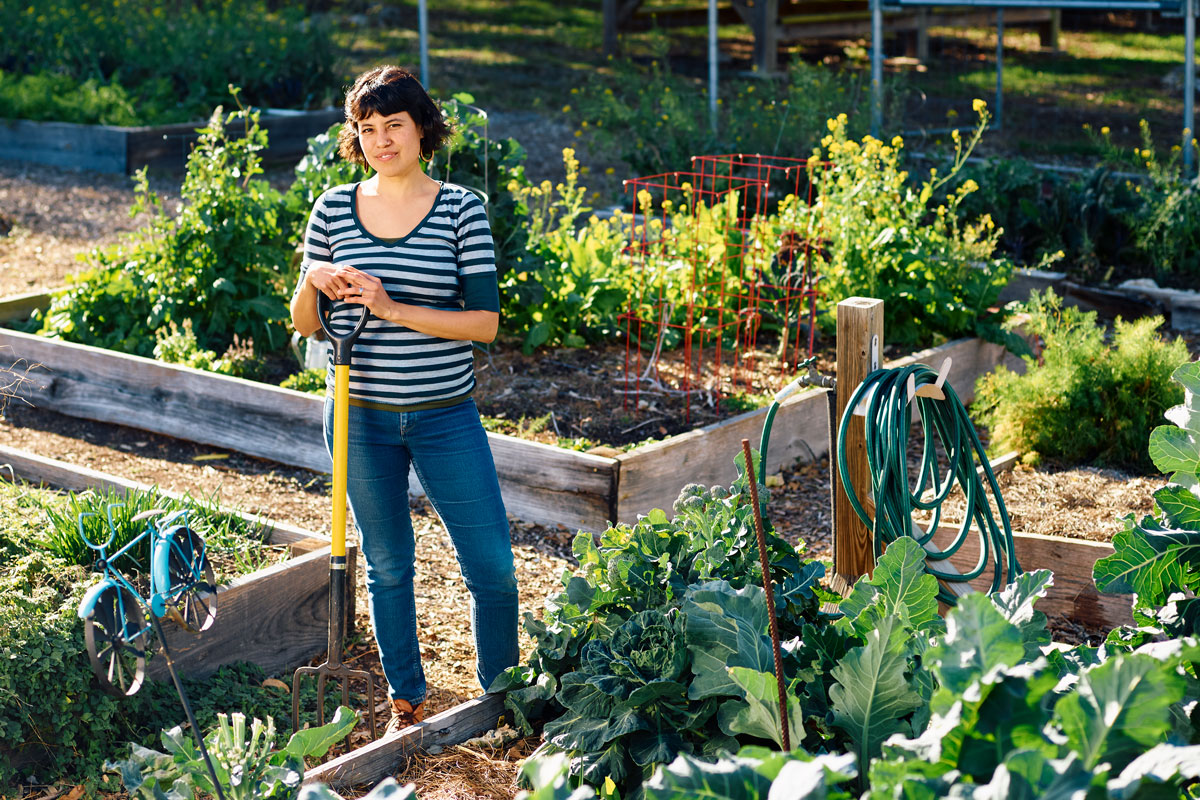Plant the Seeds of Change
Agriculture isn’t just about feeding people. It can be a tool for social change.
To Sari Albornoz ’06, food is not a commodity. It is a dynamic force that shapes the destiny of cultures and economies. She knows that growing food is a potent means for connecting with natural cycles, weather patterns, and—perhaps most important of all—other people.
“If you’re growing food at a community garden or a school garden, you are essentially participating in an organization, building it, and maintaining it with other people,” she says. “You have an opportunity to work alongside people you otherwise wouldn’t ordinarily interact with—people outside your age group or outside your culture group. I was a garden community member myself for five or six years, and it was really cool to meet people that I never would have talked to and spend time together doing projects and sharing an eggplant with my plot neighbor.”
Last summer, she and four friends founded Fruitful Commons, a nonprofit based in Austin, Texas, that helps people start cultivation projects, such as garden collectives, chicken coops, or food forests. They are putting together a “gathering of growers,” people who are interested in coming together to learn from each other.
“We recognize that neighborhood leaders are already pursuing projects like these and may simply lack some of the knowledge or resources necessary to bring their projects to fruition and to sustain them for the long haul,” she says.
A biology major at Reed, Sari led the Grow Local program at Austin’s Sustainable Food Center for 11 years, supporting community and school gardens, advocating for community agriculture, and launching the agency’s Equity Team. Now she’s working on a master’s degree in community and regional planning at the University of Texas at Austin, where her research is focused on Austin’s voluntary flood buyout program, in which the city helps residents relocate away from flood-prone areas by buying—and demolishing—their homes.
In one area, more than 800 homes near the creek were purchased and demolished, leaving fields of open space. Sari is exploring agricultural projects that might be viable in such spaces. Because of the high likelihood of flooding, a commercial farm dependent on the sale of crops probably wouldn’t be a good match—but a food forest might be. She is also examining what the land might look like if racial equity were prioritized.
The pandemic has underscored the value of collective agriculture, Sari points out. If a national emergency interrupts the food supply, a community garden can provide a low-cost alternative. Just as important, the experience of growing food together strengthens social ties and fosters a sense of community—a vital form of public health.
Tags: Alumni, Diversity/Equity/Inclusion, Climate, Sustainability, Environmental
